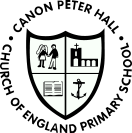We have chosen to conduct deep study into two religions (Christianity and Islam) at KS1 and three at KS2 (Christianity, Islam and Hinduism.) Revisiting these religions each year helps children to deepen their understanding of the key concepts attached to each religion and broaden their understanding of the ways in which religious people reflect these concepts in their day to day life.
Sequencing
Each faith is taught through a balanced approach whereby children are taught:
- The theology and/or beliefs that underpin the world view
- The religious practices through which people live out their world view
- To reflect upon how this may impact the thinking of a person living out this world view and how it compares to pupils’ own world views and that of others.
Teachers begin each in depth study of a particular religion by introducing or recapping the “Big Story” documents, which put the key concepts and beliefs in the context of the bigger picture.
A typical sequence of learning for this type of unit is shown in the diagram below.


